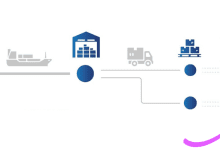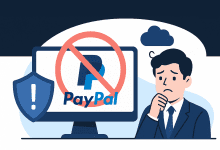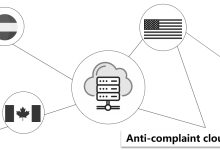First, let’s take a closer look at what SaaS e-commerce really means. SaaS (Software-as-a-Service) e-commerce is a cloud-based solution that allows users to access e-commerce software via a web browser. In simple terms, it enables sellers to create their own standalone websites without needing to build the technical infrastructure from scratch.

Some of the most popular SaaS e-commerce platforms include Shopify, BigCommerce, Wix, and Ecwid. Among them, Shopify is especially well-known for its ease of use and wide range of features. These platforms typically follow a subscription-based model, allowing merchants to quickly set up and run their online stores.

There’s no doubt that platforms like Shopify are powerful tools for selling general consumer products. They’re ideal for merchants who want to launch quickly, manage everything from one dashboard, and integrate with various payment and marketing tools.
However, it’s important to understand the limitations of SaaS platforms—especially when it comes to replica products.
While SaaS platforms are excellent for selling legitimate products, they are not designed for selling replica or branded look-alike goods. In fact, all mainstream SaaS e-commerce providers strictly prohibit the sale of products that imitate or infringe upon intellectual property rights.
Using a SaaS-based standalone website to operate a replica store is simply not viable. Your store could be taken down at any moment, your account suspended, and your data lost—because you don’t own the infrastructure. The terms of service of these platforms are tightly aligned with international IP regulations and brand protection policies.
To further clarify, a true standalone website is typically built with custom development or based on open-source systems like Opencart, WooCommerce, Magento, or PrestaShop. In this case, the merchant fully controls the data, hosting environment, and site code. That also means the business has greater flexibility—but also more responsibility.
By contrast, SaaS platforms keep your store’s backend, data, and even customer information within their closed ecosystem. If there’s a policy violation or brand complaint, you may have little recourse. In this sense, using a SaaS platform means your store’s fate is in someone else’s hands.
Why SaaS Platforms Aren’t for Replica Sites?
Anyone with experience in the replica product industry—or even those with a basic understanding of it—knows that SaaS platforms are not the right tools for this line of business. In fact, aside from a few inexperienced beginners, almost no one in the replica space uses SaaS-based solutions to build their websites.
Here’s why:
1. Strict Platform Policies
All major SaaS e-commerce platforms explicitly prohibit replica or look-alike products. These platforms are legally liable for content hosted under their systems, which is why they enforce intellectual property (IP) compliance strictly.
Any well-established SaaS platform—especially Shopify—has zero tolerance for IP infringement. If your store is caught selling replicas, it will be immediately shut down without warning. Their policies are non-negotiable and based on legal obligations.

2. Misaligned Business Models
SaaS e-commerce platforms are built for legitimate general merchandise. Their revenue comes from monthly subscriptions, transaction fees, and value-added services such as templates, plugins, and integrations.
Allowing replica sellers on their platform would not only conflict with their revenue model, but also damage their legal standing and reputation. For example, Shopify is entirely built around compliance and transparency. Running a replica store there? Guaranteed takedown.
3. Incompatible Regulatory Requirements
Most SaaS platforms operate globally and must comply with various national and international regulations, which often include licensing, tax, and business identity verification.
Because of this, they are simply not designed to serve gray-market industries. The replica space doesn’t even register as part of their intended use case. And since replica businesses cannot provide standard compliance documents, they cannot pass proper platform verification.
4. Lack of Industry Expertise
SaaS platforms have no background or technical expertise in serving the replica industry. They don’t understand the rapid changes in this space—whether it’s Facebook ad algorithm updates, Google bot detection methods, or payment routing tricks like “jump servers” or multi-gateway failovers.
Take payment processing for example: No mainstream SaaS platform will support advanced replica techniques like A-B site redirection or hidden middle-layer payment pages, because these tactics fall completely outside their supported scope.
Even in China, there are a few low-tier SaaS platforms that attempt to incorporate tricks like A-B redirects just to attract sellers—but these methods are basic and unreliable. Sellers often realize, after a short time, that they can’t collect payments at all, or worse, that their PayPal accounts get banned and funds get frozen.
One of the most common complaints replica sellers have is about so-called “PayPal jump solutions” offered by some shady SaaS providers. In reality, most of these are just rebranded A-B redirection setups—an old technique used in Putian over a decade ago.
Here’s the truth: A-B redirection alone is no longer effective. Platforms like PayPal have advanced detection systems. If you don’t implement a full strategy—bot evasion, IP rotation, multi-gateway routing, multi-account fallback, etc.—you’re guaranteed to run into trouble. Even with these, large transaction volumes will still require special payment channels, which we’ve discussed in detail in other articles, please read this article: How Replica e-Commerce Sites Handle Payments in 2025: AB Site Model Explained
Final Words
If you’re thinking about using a SaaS-based standalone website to run a replica store—think twice. These platforms are not built for gray-area businesses, and using them will only lead to closures, frozen funds, and wasted effort.
If you’re serious about navigating this space, you’ll need a fully self-hosted, custom-built system with infrastructure that you control—and ideally, the guidance of someone who understands both the tech and the risks involved.
🔧 Custom-Built Replica Sites. Full Control. Maximum Safety.
Looking to launch a replica product store without the risks of SaaS platforms?
We offer professional, self-hosted replica website solutions tailored for stability, payment safety, and long-term scalability.
📩 Get in touch via Telegram or Email for a 1-on-1 consultation.
 Custom E-commerce Solutions for High-Quality Designer-Inspired Fashion Replicas | Website Development, Dropshipping, Payment Integration for PayPal and Stripe, Ad Cloaking Services
Custom E-commerce Solutions for High-Quality Designer-Inspired Fashion Replicas | Website Development, Dropshipping, Payment Integration for PayPal and Stripe, Ad Cloaking Services





![5 Best WordPress Themes for Replica Product International Trade Websites [Recommended]-Custom E-commerce Solutions for High-Quality Designer-Inspired Fashion Replicas | Website Development, Dropshipping, Payment Integration for PayPal and Stripe, Ad Cloaking Services](https://replicasmaster.com/wp-content/uploads/2025/06/1-1-220x150.jpg)


















